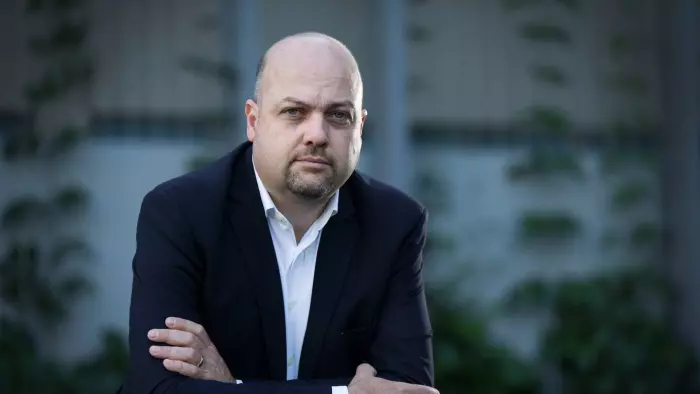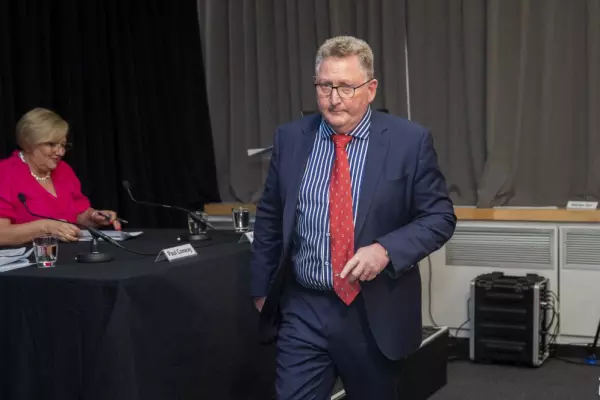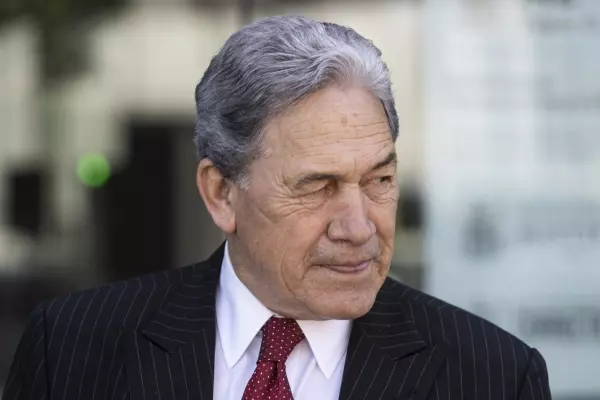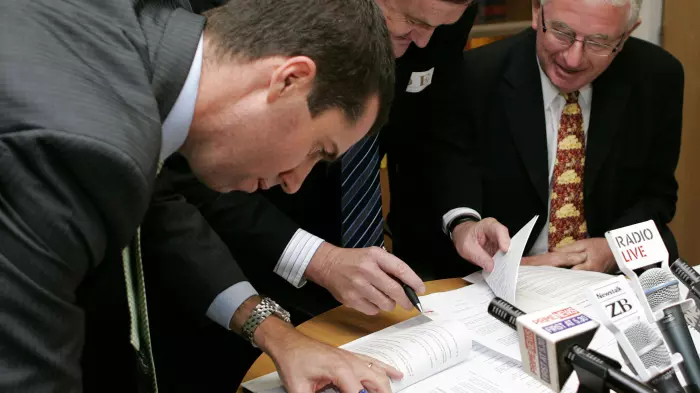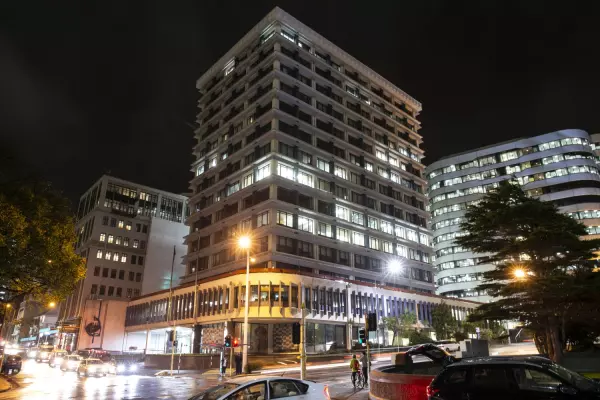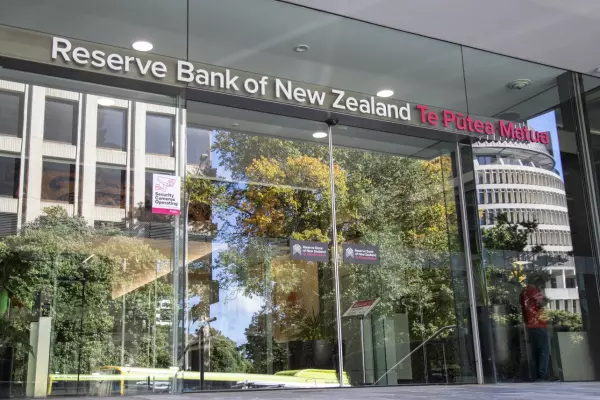Thieves stealing charity boxes from shop counters are quickly rebuked, but overseas-based charities registered in New Zealand with the intention of tax evasion or laundering millions offshore are more often than not met with public ambivalence.
“As a nation, we almost revel in the idea that nasty foreigners will take advantage of us,” says Transparency International NZ director, Adam Hunt.
Hunt was involved in establishing the executive of the Financial Markets Authority (FMA), worked in the intelligence section of the Inland Revenue Department (IRD) and is NZ’s first outsourced provider of anti-money laundering services.
He says public ambivalence about laundering money through NZ happens because it might be the conduit for concealing proceeds of crime but is not usually the source of the theft.
“We feel comfortable taking a victim stance in the whole thing,” he says.
The tax department
Before a charity is subject to an investigation it must first pass the threshold of a preliminary inquiry.
The IRD, like Charities Services, has powers to investigate charitable trusts, often as a result of complaints from outsiders.
If the IRD commissioner becomes aware of potential money laundering or terrorism financing activity by either a local or foreign charity information relating to the registration (or absence of registration), the information can be shared with Internal Affairs (Charities Services is under its umbrella) or the police.
Both the IRD and Charities Services keep their investigations secret until they reach a conclusion, but details are likely to be revealed publicly only if there is strong evidence of wrongdoing.
Charities Services has a handful of foreign charitable trusts under its watch by its team of eight investigators – at least one has been on the books for 20 months, BusinessDesk understands.
It outlines on its website the risks of terrorist and other criminal activities in certain areas where charities operate overseas.
Swiss trust
In 2017, the NZ Herald publicised the last sizable foreign charitable trust investigation when an Internal Affairs report raised concerns that three charitable trusts run out of NZ and holding more than $140 million may have been misused to evade tax or to launder money.
The investigation found that while there were some NZ donations from the Mulligan, Shepherd and Birdy charitable trusts, most donations, totalling $5m between 2012 and 2016, were directed offshore to a related Swiss entity that had a multi-layered structure spanning Switzerland, Panama and the Isle of Man.
The trusts held foreign currencies and a stock portfolio managed by Swiss banks. Internal Affairs concluded the charitable trusts were most likely designed to avoid the scrutiny of the US Inland Revenue Service. The trusts were voluntarily deregistered shortly before the report was concluded.
An Internal Affairs spokesperson told BusinessDesk the department recognised that a number of charities operated overseas and had obligations under the AML/CFT system. It provided guidance to these charities via a number of channels including the Charities Services website and webinars.
“Registration as a charity clearly brings a range of benefits and obligations for charitable organisations that voluntarily choose to register and maintain that status,” the spokesperson said.
They added that the Charities Registration Board was concerned with a charity’s eligibility for registration under the Charities Act, whereas the resulting tax benefits were the responsibility of Inland Revenue and tax-paying entities.
Obligations
The IRD recently released an exposure draft about charities and donee organisations, detailing their tax treatments and obligations and how the IRD commissioner will apply the legislation.
A charity with mainly overseas purposes may qualify for donee status under the Income Tax Act. Schedule 32 of the act lists around 120 charitable trusts that donate more than 50% overseas that have NZ government approval to give tax-deductible receipts.
An organisation must apply to the IRD for this status and then it must be approved by Cabinet. The criteria are strict. Applicants must be able to ensure they are credible, transparent and accountable and that their activities are ones the NZ government would support and that there is no risk of private benefit or other misuse.
Overworked
Hunt says the big problem NZ faces is keeping abreast of breaches of the Anti-Money Laundering and Countering Financing of Terrorism Act (AML/CFT) or any other fraud, which is a lack of resources across the board.
“We’re pushing [the work] on to the banks and various professional and services businesses in this AML/CFT space but we have got to make sure they are doing their job,” he says.
“I have sympathy for public servants who have overwhelming levels of work, especially in the area of risk-based assessment.
"We just don’t have enough people and are not technically equipping them properly.
“We have all the machinery that we need and the legislative tools are in place but we’re just scratching the surface”.
Hunt stands firm on his observations even though in April last year the intergovernmental Financial Action Taskforce (FATF) released its latest evaluation report on NZ’s measures to combat money laundering and terrorist financing, highlighting world-class systems in place to combat both.
“NZ is one of the most difficult places in the world to conduct criminal business and finance terrorism. We are vigilant and our systems can detect and stop these threats,” NZ’s head of the delegation to the taskforce, Andrew Hill, said after the report’s release.
The value of assets restrained by NZ police under the Criminal Proceeds Recovery Act at that time was more than $1 billion.
“The evaluation highlights the success NZ has had in targeting criminal finances since investment in policing organised crime,” Hill said.
“This is international recognition of our strategy to make our communities safer for generations to come. We are using all of our tools, including strengthening anti-money laundering systems, to make this the hardest place to do criminal business.”
Shortcomings
Hunt feels the government has started to address shortcomings in this area through bodies such as the Serious Fraud Office but pointed to issues such as the IRD losing a large number of audit staff through the introduction of its business transformation plan.
He was confident, however, that the IRD’s recently appointed commissioner and chief executive, Peter Mersi, was on top of the issues.
IRD's response was that because of its business transformation project it had shifted its focus on compliance issues to intervene at an appropriate time – and not always through audit activity.
“Our better data access and tools mean we can be more targeted in our approach,” a spokesperson says.
Further, the department says it’s confident the project had not reduced its ability to respond to issues with money laundering.
“Business transformation has produced savings (for example, we can do more with fewer people), but not at the expense of our ability to deal with non-compliance.”
Villains
Hunt says Transparency International has received feedback that law enforcement in NZ is fragmented.
“Enforcement hasn’t kept up with this dichotomy,” he says.
While self-policing was admirable in a charity, he says the model didn’t cut the mustard anymore when it came to international crime.
Because charities mostly do not pay tax, he says a lot of the risk perception around them was tax risk and that the IRD would pursue that area.
“Revenue authorities, therefore, don’t treat people in this spectrum as if they could be criminals so where do their staff learn what to look for?
“Villains abusing our structures look at them as obstacles to pick off,” he says,
Banks are getting better [at detection] but there is still work to do in this sector.”
Hunt says criminals also considered NZ an easy source for laundering ill-gotten gains because it does not have a culture prevalent overseas where locals want their cut of the action through bribery.
He says NZ needs to set up an organisation similar to the Australian Transaction Reports and Analysis Centre (AUSTRAC), the agency responsible for preventing, detecting and responding to criminal abuse of Australia’s financial system to protect the country from serious and organised crime.


